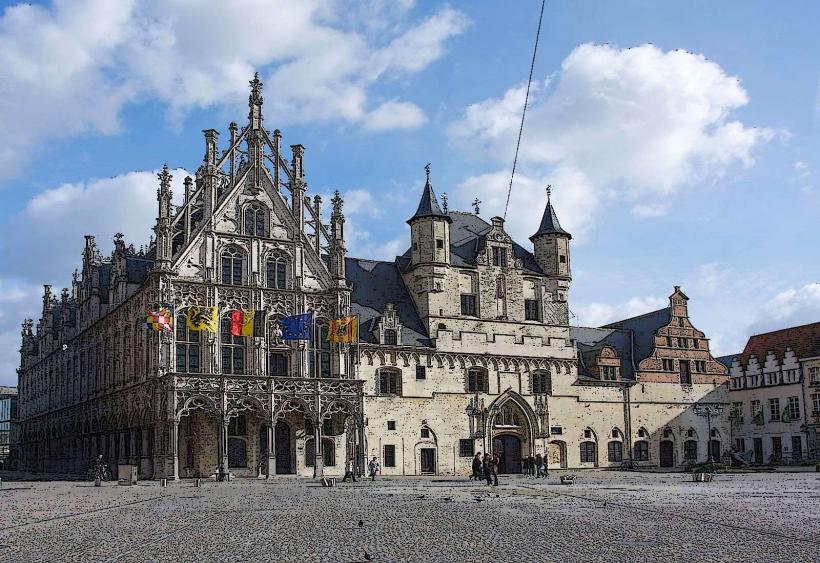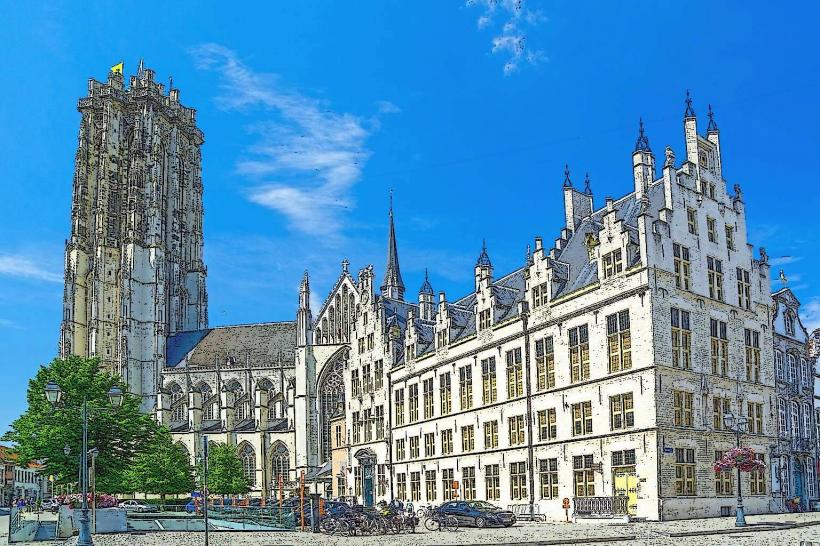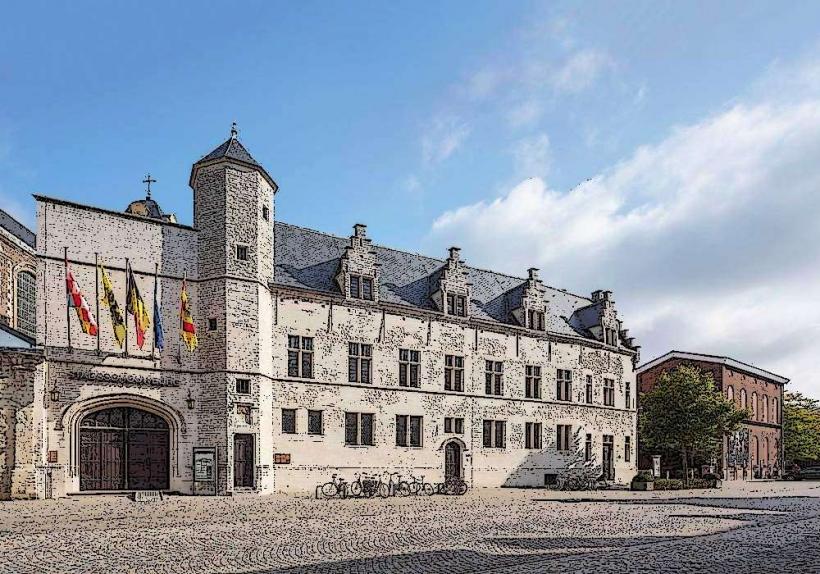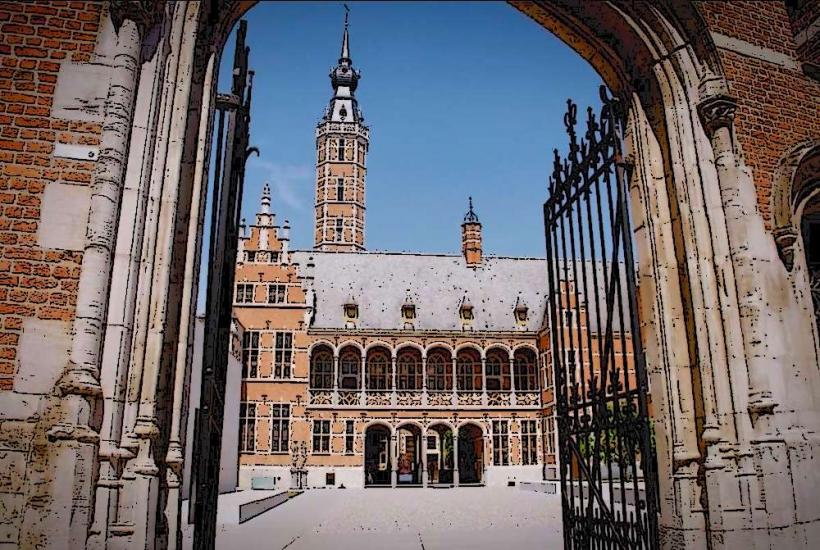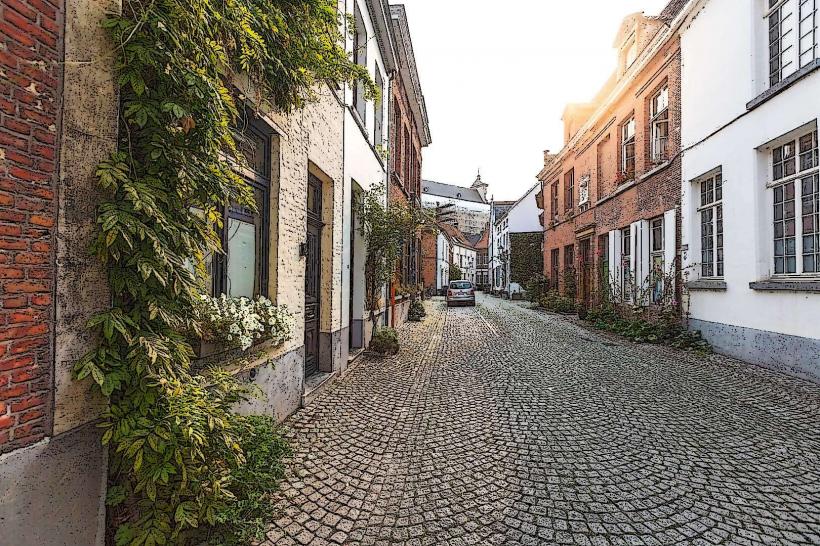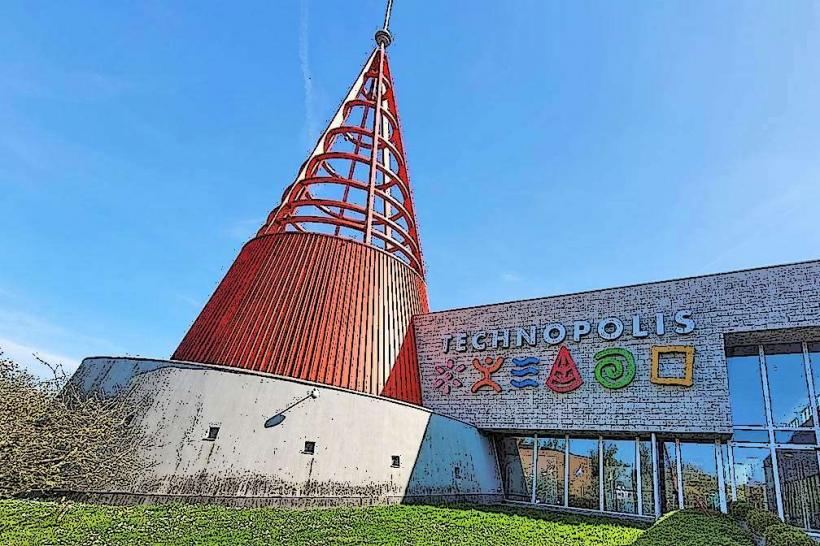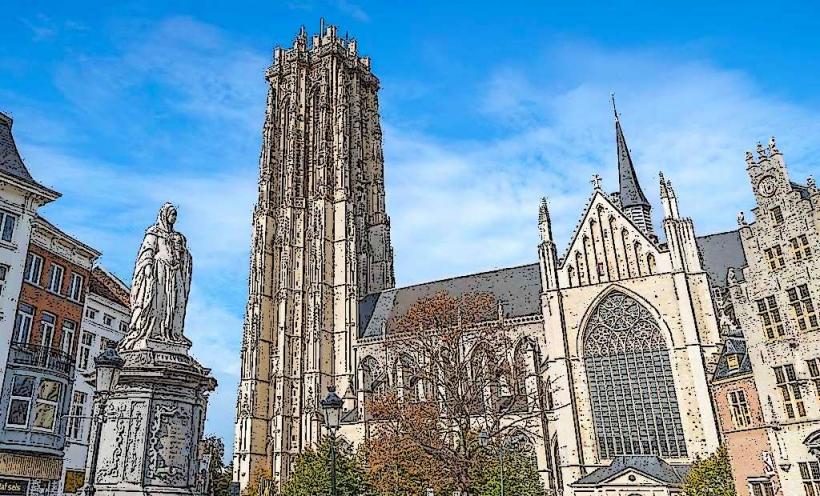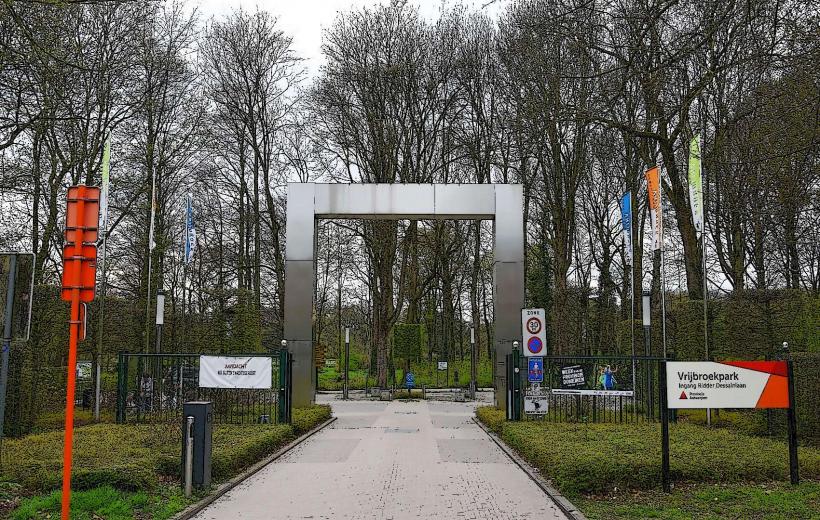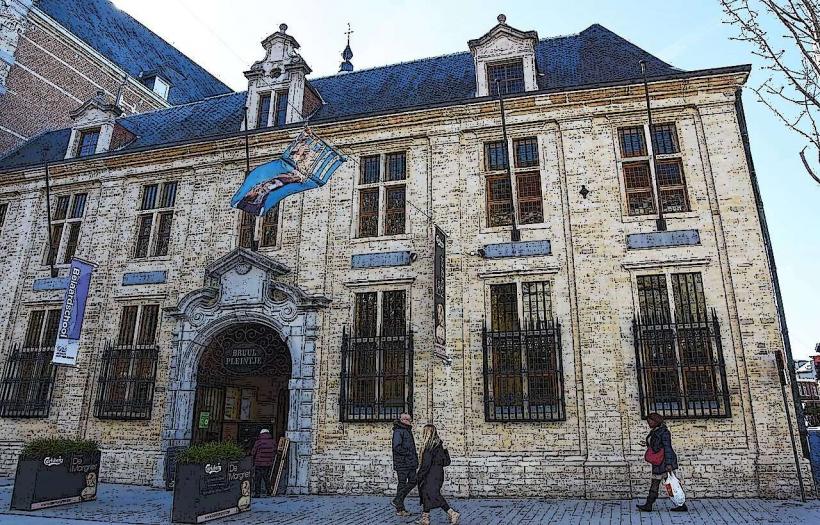Information
Landmark: Kazerne DossinCity: Mechelen
Country: Belgium
Continent: Europe
Kazerne Dossin, Mechelen, Belgium, Europe
Kazerne Dossin is a historical site and museum in Mechelen, Belgium, dedicated to preserving the memory of the Holocaust and the deportation of Jews and Roma during World War II. The building itself played a significant role in the tragic events of the war, and today it serves as a museum and memorial to educate visitors about the atrocities that occurred during the Nazi occupation of Belgium.
Historical Background
Construction and Early Use: Kazerne Dossin was originally built in 1854 as a military barracks for the Belgian Army. It remained a functioning military complex until 1940, when Belgium was invaded by Nazi Germany during World War II.
Nazi Occupation: In 1942, the Nazis repurposed the barracks for use as a deportation center for the Jewish and Roma populations in Belgium. It became one of the most notorious sites for the transportation of Jewish men, women, and children to the Auschwitz and Sobibor extermination camps.
Deportations: Between 1942 and 1944, more than 25,000 Jews and 350 Roma were detained at the Kazerne Dossin barracks before being sent to concentration camps and death camps. The Nazis organized the deportations in a systematic manner, with victims being rounded up, held in the barracks under inhumane conditions, and then transported by train to their deaths.
Post-War: After the war, the building continued to serve as a military barracks until 2001, when it was repurposed for its current function as a memorial and museum. The memory of the deportations and the atrocities of the Holocaust is preserved and shared with future generations through exhibitions and educational programs.
The Museum
Kazerne Dossin now houses the Kazerne Dossin Memorial, Museum, and Center for Holocaust and Human Rights. The museum is dedicated to preserving the memory of those who were deported during the Holocaust and aims to educate visitors about the dangers of intolerance, discrimination, and racism.
Exhibitions: The museum offers permanent and temporary exhibitions that explore the history of the building, the events surrounding the deportations, and the experiences of the victims and survivors. The permanent exhibition, titled "The Holocaust in Belgium", chronicles the history of the Jewish community in Belgium, the Nazi occupation, the rounding up of Jewish citizens, and their eventual deportation to the death camps.
The exhibition includes personal stories, photographs, documents, and artifacts that provide a vivid picture of the horror experienced by the victims. Among the most moving sections of the exhibition is a room dedicated to the names and faces of the deported-many of whom were sent to their deaths at Auschwitz and other concentration camps.
The museum also includes an interactive timeline that outlines key events in the history of the Holocaust in Belgium, as well as educational resources about the Nazi regime and the mechanisms of genocide.
Memorial: The museum also includes a memorial area that honors the victims of the deportations. One of the most poignant features of the memorial is the Wall of Names, which lists the names of the 25,000 Jewish victims who were deported from Belgium during the war. This wall serves as a solemn tribute to the lives lost and is a reminder of the personal stories behind the statistics.
The Deportation Railway: Another powerful symbol within the museum is the Deportation Railway, which represents the transport of victims from the Kazerne Dossin to the concentration camps. The railway cars used for these transports are recreated in the museum to give visitors a sense of the conditions in which people were transported.
Educational Programs: Kazerne Dossin also offers a wide range of educational programs and workshops for schools, as well as guided tours that provide an in-depth look at the history and significance of the site. The museum's educational focus extends beyond the Holocaust to address issues of human rights, racism, and the importance of tolerance in today's world.
Temporary Exhibitions: The museum regularly hosts temporary exhibitions on themes related to the Holocaust, war crimes, human rights, and memorialization. These exhibitions bring attention to lesser-known aspects of the Holocaust and engage visitors with contemporary issues related to prejudice, discrimination, and violence.
Significance of the Site
Educational Role: Kazerne Dossin serves as a vital institution for educating future generations about the Holocaust and the dangers of prejudice, racism, and intolerance. Its mission extends beyond simply commemorating the past; it is deeply committed to promoting human rights and fighting against discrimination and hate speech in modern society.
Remembrance: The museum and memorial play an essential role in keeping the memory of the victims alive. The stories of survival, the recollections of the deportations, and the tragic loss of life are central to the mission of Kazerne Dossin.
A Site of Reflection: Visiting Kazerne Dossin is an emotional and educational experience. It is a place of reflection, where visitors can learn about the atrocities of the past while considering the importance of remembrance, justice, and the prevention of future atrocities.
Visitor Information
Location: Kazerne Dossin is located in the city of Mechelen, in Flemish Brabant, Belgium. It is situated on the Brusselsesteenweg, a short distance from the Mechelen Railway Station.
Opening Hours: The museum is typically open seven days a week, though it is closed on January 1st, Easter Sunday, and December 25th. It is always recommended to check the museum's official website for specific opening hours and holiday closures.
Admission: There is an admission fee to enter the museum. The fees support the museum's ongoing work in preservation, education, and public programs. Discounts are often available for students, seniors, and groups.
Guided Tours: The museum offers guided tours in several languages. These tours provide additional context and information about the museum's exhibitions and the history of the Holocaust in Belgium.
Accessibility: The museum is accessible to visitors with disabilities, and it strives to make its exhibits as inclusive and informative as possible.
Conclusion
Kazerne Dossin is an important site of memory and education, dedicated to preserving the history of the Holocaust and the victims who suffered and died during this tragic period. Through its exhibitions, memorials, and educational programs, the museum provides visitors with a deep understanding of the horrors of the past while promoting messages of tolerance, respect, and human rights. It stands as a solemn reminder of the dangers of discrimination and the need to stand against hatred in all its forms.

